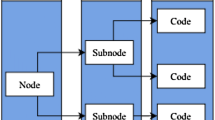Abstract
The theories of information ethics articulated by Luciano Floridi and his collaborators have clear implications for law. Information law, including the law of privacy and of intellectual property, is especially likely to benefit from a coherent and comprehensive theory of information ethics. This article illustrates how information ethics might apply to legal doctrine, by examining legal questions related to the ownership and control of the personal data representations, including photographs, game avatars, and consumer profiles, that have become ubiquitous with the proliferation of information and communication technologies. Recent controversy over the control of player performance statistics in “fantasy” sports leagues provides a limiting case for the analysis. Such data representations will in many instances constitute the kind of personal data that information ethics asserts constitutes an information entity. Legal doctrine in some instances proves sympathetic to such an assertion, but remains largely inchoate as to which data might constitute a given information entity in a given instance. Neither is information ethics, in its current state of development, entirely helpful in answering this critical question. While information ethics holds some promise to bring coherence to this area of the law, further work articulating a richer theory of information ethics will be necessary before it can do so.
Similar content being viewed by others
References
A. Bartow. Our Data, Ourselves: Privacy, Propertization and Gender. University of San Francisco Law Review, 34: 633–704, 2000
D. Burk. Legal Consequences of the Cyberspatial Metaphor. In M. Consalvo et al. editors, Internet Research Annual Vol. 1: Selected Papers from The Association of Internet Researchers Conferences 2000–2002, pp. 17–24. Peter Lang, 2003
D. Burk. Expression, Selection, Abstraction: Copyright’s Golden Braid. Syracuse Law Review, 55: 593–618, 2005
D. Burk. Electronic Gaming and the Ethics of Information Ownership 4. International Review of Information Ethics 4, 2006a. http://www.i-r-i-e.net/inhalt/004/burk.pdf
D. Burk. Privacy and Property in the Global Datasphere. In: S. Hongladarom and C. Ess, editors, Information Technology Ethics: Cultural Perspectives, pp. 94–107, Idea Group, 2006b
D. Burk. Method and Madness in Copyright Law. Utah Law Review, 2007: 587–618, 2007
C.B.C. Distribution and Marketing, Inc. v. Major League Baseball Mass Media, L.P., 443 F. Supp. 2d 1077 (E.D. Mo. 2006)
L. Floridi. Information Ethics: On the Philosophical Foundations of Computer Ethics. Ethics and Information Technology, 1: 37–56, 1999
L. Floridi. On the Intrinsic Value of Information Objects and the Infosphere. Ethics and Information Technology, 4:287–304, 2003
L. Floridi. The Ontological Interpretation of Informational Privacy. Ethics and Information Technology, 7: 185–200, 2005
L. Floridi. Four Challenges for a Theory of Information Privacy. Ethics and Information Technology, 8: 109–119, 2006
L. Floridi, J.W. Sanders. Artificial Evil and the Foundation of Computer Ethics. Ethics and Information Technology, 3: 55–66, 2001
W. Gibson. Idoru. Penguin, 1996
S. Haack. On Logic in the Law: “Something but not All”. Ratio Juris, 20: 1–31(2007)
L. Heyman. The Birth of the Authornym: Authorship, Pseudonymity, and Trademark Law 80. Notre Dame Law Review, 80: 377, 2005
J. Malkan. Stolen Photographs: Personality, Publicity, and Privacy. Texas Law Review, 75: 779–835, 1997
M. McKenna. The Right of Publicity and Autonomous Self-Definition. University of Pittsburgh Law Review, 67: 225–294, 2005
M. McKenna. The Normative Foundations of Trademark Law. Notre Dame Law Review, 82: 1839–1916, 2007
N. Negroponte. Being Digital. Vintage Books, New York, 1995
M.J. Radin. Property and Personhood. Stanford Law Review, 34: 97–1015, 1982
J. Reidenberg. Resolving Conflicting International Data Privacy Rules in Cyberspace. Stanford Law Review, 52:1315–1371, 2000
D. Starke-Meyering, D. Burk, and L. Gurak. American Internet Users and Privacy: A Safe Harbor of Their Own? In P.E.N. Howard and S. Jones, editors, Society Online: The Internet in Context, pp. 275–294. Sage, 2004
P. Swire, R. Litan. None of Your Business: World Data Flows, Electronic Commerce, and the European Privacy Directive. Brookings, Washington DC, 1998
N. Weiner. The Human Use of Human Beings: Cybernetics and Society, (2nd ed.). Doubleday Anchor, 1954
A.F. Westin. Privacy and Freedom. Atheneum, New York, 1968
Author information
Authors and Affiliations
Corresponding author
Rights and permissions
About this article
Cite this article
Burk, D. Information ethics and the law of data representations. Ethics Inf Technol 10, 135–147 (2008). https://doi.org/10.1007/s10676-008-9161-y
Received:
Accepted:
Published:
Issue Date:
DOI: https://doi.org/10.1007/s10676-008-9161-y



